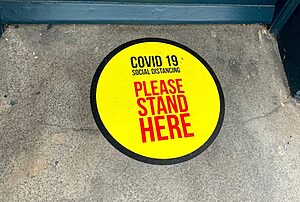In brief
- Co-governance wasn’t campaigned on by Labour in the 2020 general election.
- It has been acutely contentious when it violates the principle of one person-one vote.
- Former Prime Minister Jim Bolger has called for clarity on Labour’s intentions around co-governance.
- Co-governance is not an enshrined right, it boils down to party policy so vote accordingly.
One person-one vote
There tends to be controversy regarding co-governance when the suggested form prioritises ethnicity over the democratic principle of one person-one vote. For example the Water Services Entities Act or the proposed veto (since scrapped) for the Māori Health Authority over Health NZ.
The justification for many is a belief that promoting equality of outcomes and a desire for “social justice” for Māori trump principles of democracy.
There are many forms of co-governance and many more proposed to incorporate different interpretations into local government, green spaces and education.
The Government has balked at bringing forward a definition of co-governance until 2024.
Former Prime Minister Jim Bolger has said the Government’s lack of clarity is damaging and the phrase “co-governance” implies a division in society.
Much of what currently constitutes co-governance in areas of health and fresh water were not campaigned on in the 2020 general election. Therefore, it is not clear to what degree opinions on co-governance follow party lines and the recent push has been far more extreme than any previous actions.
The national debate around co-governance comes at a time when social cohesion is becoming an election issue. Culture wars, polarisation, tribalism, inequality and race are being highlighted. Moderates say the discussion around co-governance needs to be handled skilfully as there are concerns anti-Māori sentiment could be piqued and the debate itself becomes toxic.
Others argue average Māori don’t benefit from most forms of co-governance. Only an elite few are able to accrue power and influence to themselves at the expense of others.
The Treaty, which is one page long, has only a few broad principles. There will always be debates about how the Treaty applies to a particular situation. The fact there is a Māori language version as well, which is arguably different, adds to the debate, but it’s important to note that “co-governance” isn’t mentioned. Of course there are court judgements over time, but those are often for a single situation, which each side then tries to use in the continuing debate. Many enthusiasts try to apply the Treaty when it is hard to see how it has any bearing. An example is as the Human Rights Commissioner, Paul Hunt, attempting to justify that housing is a human right under the Treaty.
“Te Tiriti” is the Māori language term for “The Treaty”. When someone refers to the Treaty that way, it often suggests a distinction favouring Māori in New Zealand law as opposed to everyone being equal.
In the end, for the most part, the interpretation of the Treaty boils down to the policies of the government of the day. They can, with perhaps a few limited exceptions, enact laws reflecting their interpretation regarding co-governance or any other issue, even generally overruling the courts. So, rather than being drawn into partisan debates, with various “experts” having contrary opinions, isn’t the answer for each voter to understand the political parties’ positions on the issue and vote accordingly?



















